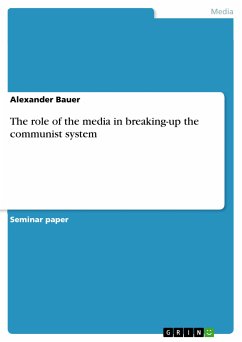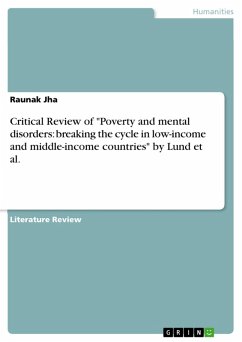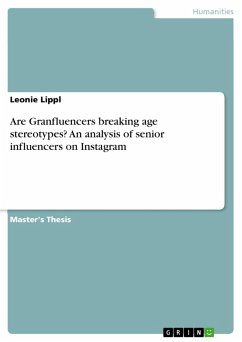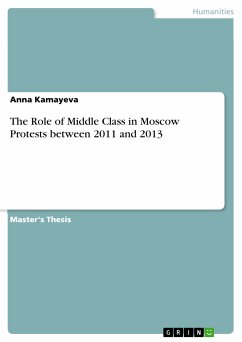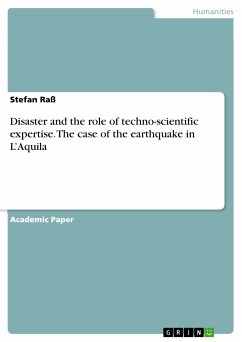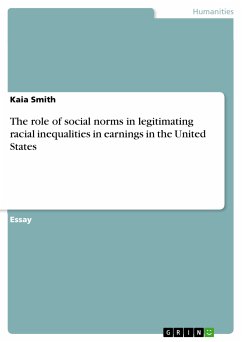Seminar paper from the year 2002 in the subject Communications - Media and Politics, Politic Communications, grade: 1.3, Estonian Business School (-), course: Political Reforms in East and Central Europe, language: English, abstract: “A pen can be more powerful than a sword!”. This simple phrase shows the capacity of media. As long as we can think about the meaning of media it was used by political systems to support their power. Media can be used to give the people a special way of thinking, but it can also be a free tool to support a free thinking about affairs. With modern technology in the beginning of the 20th century people were confronted with mass media for the first time. The states in the second World War used the media to spread information – it did not matter if the information were wrong or false as long it secured the support of the population: Propaganda was born. The last Soviet leader, Mikhail Gorbachev, also discovered the power of the media. He tried to revamp the Soviet Union by allowing the media a greater range of freedoms under his policy of glasnost. But as he and the world soon discovered, the power of accurate information delivered in a timely fashion to those who needed it soon overwhelmed the barriers he had hoped to maintain. The destruction of communism and of the Soviet empire soon followed.
Bitte wählen Sie Ihr Anliegen aus.
Rechnungen
Retourenschein anfordern
Bestellstatus
Storno

